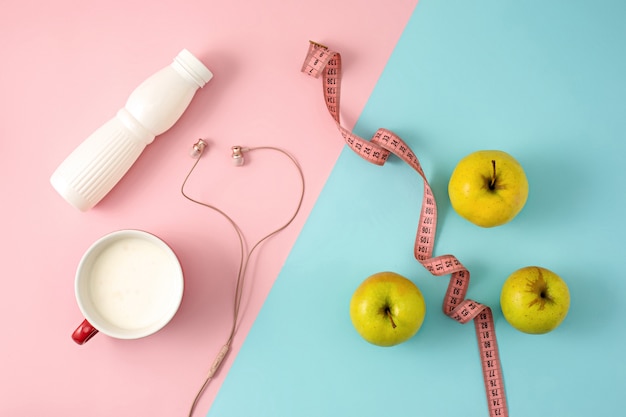
When it comes to weight loss, many people assume that counting calories and eating less is the way to go. However, Terry Fairclough, a personal trainer and co-founder of Your Body Programme, suggests this isn’t necessarily the best approach.
As a personal trainer, I’ve heard countless opinions and questions about the best diet for weight loss. People often wonder if they should focus on counting calories, follow a high-protein or low-carb diet, or perhaps try fasting or eating small, frequent meals. While all these methods might have their place depending on individual goals and body types, there’s one thing you should avoid: undereating.
We’ve all seen someone start counting calories and dramatically cut their intake in hopes of achieving a beach-ready body. While this can lead to weight loss, it doesn’t necessarily reduce fat, which is what most people want. Many in the Western world consume larger portions than needed. So, a slight calorie reduction might be necessary, mostly because many overeat to begin with. However, the belief that undereating is the only way to lose weight is misguided.
The body breaks down the carbohydrates we eat into glucose, our primary energy source. If the body doesn’t need this glucose immediately, it’s stored as glycogen in the liver and muscles, attached to water molecules. In situations where the body needs energy and isn’t getting enough glucose from food, glycogen converts back to glucose, providing fuel. So, cutting calories often means losing stored carbohydrates and water, rather than fat.
If you maintain a calorie deficit for too long, your body will go into a panic mode, preserving fat and breaking down protein instead. Protein is essential because it’s biologically active, helping burn fat to fuel muscles even when at rest. Reliable intake of calories from all macronutrients—fats, carbs, and protein—is vital.
A common misconception is that eliminating fat is necessary for weight loss. On the contrary, fat is a crucial, long-lasting energy source, offering more energy per gram than carbs or protein. During exercise, stored body fat is broken down for energy. Therefore, cutting fat entirely would leave you without the necessary energy reserves for burning unwanted fat.
Moreover, drastic calorie cuts can lead to nutrient deficiencies, affecting your immune and digestive systems, slowing down your metabolism, and inviting health issues like fatigue, osteoporosis, anemia, or hormonal imbalances. An extreme calorie deficit is also stressful for the body, escalating cortisol levels which, though initially leading to weight loss, eventually provoke fat storage and other metabolic issues if prolonged.
Undereating disrupts digestion and nutrient absorption, affecting overall health and workout results while trying to lose fat. It can even impact your sleep by causing adrenaline spikes that disrupt restfulness, leading to several subsequent health problems, including weight gain.
Bodybuilders often reduce calories to get leaner but increase them after competing. Incorrectly managed, this can lead to health complications. Continuous calorie reduction eventually leads to the body’s inability to function optimally, storing excess calories as fat because the body interprets it as famine.
The key is to consume the right amount of calories, carbs, fats, and protein based on your personal factors like body type, fitness goals, and lifestyle. Fairclough’s Your Body Programme aims to help individuals identify their unique calorie needs. Forget about drastic calorie cuts; instead, focus on balanced nutrition that keeps your metabolism active. Include plenty of lean proteins, healthy carbs like fruits, vegetables, sweet potatoes, and whole grains, and beneficial fats such as avocados, nuts, seeds, and olive oil in your diet.
In conclusion, make sure your body is well-nourished and healthy, and your metabolism will work efficiently. Increasing your calorie intake sensibly can help in achieving fat loss. Remember, you only have one body, so treat it with care and nutritional respect.